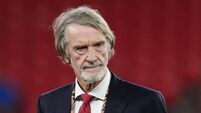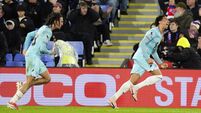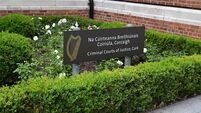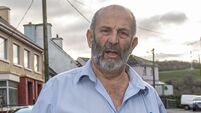John Fallon: Ruud Dokter never truly grasped Ireland’s unique football culture
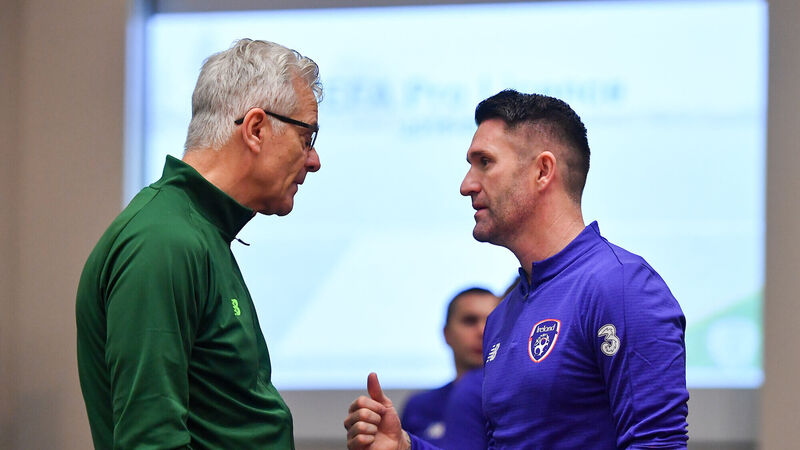
Outgoing FAI High Performace Director Ruud Dokter in conversation with then Republic of Ireland assistant coach Robbie Keane in 2019. Picture: Seb Daly/Sportsfile
After spending 13 years going Dutch in their pursuit of excellence, the FAI is preparing to go back to basics with its new football director.




